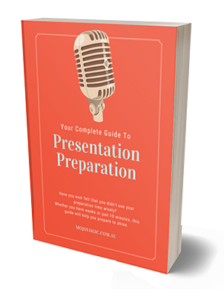This iconic speech is a beautiful display of oratory and leadership.
“We choose to go to the moon”
An Appeal to Patriotism
We choose to go to the Moon. We choose to go to the Moon…We choose to go to the Moon in this decade and do the other things, not because they are easy, but because they are hard; because that goal will serve to organize and measure the best of our energies and skills, because that challenge is one that we are willing to accept, one we are unwilling to postpone, and one we intend to win, and the others, too.
Metaphor
“But condense if you will the 50,000 years of man’s recorded history in a time span of but a half a century. Stated in these terms we know very little about the first 40 years. Except at the end of them, advanced man had learned to use the skins of animals to cover them. Then about 10 years ago, by this standard, man emerged from his caves to construct other kinds of shelter. Only 5 years ago man learned to write and use a cart with wheels. Christianity began less than two years ago. The printing press came this year. And then less than two months ago, during this whole 50-year span of human history the steam engine provided a new source of power. Newton explored the meaning of gravity. Last month electric lights and telephones and automobiles and aeroplanes became available. Only last week did we develop penicillin, and television and nuclear power. And now if America’s new spacecraft succeeds in reaching Venus we will have literally reached the stars before midnight tonight. This is a breathtaking pace.”
“We set sail on this new sea because there is new knowledge to be gained and new rights to be won and they must be won and used for the progress of all people… And only if the United States occupies a position of pre-eminence can we help decide whether this new ocean will be a sea of peace or a new terrifying theatre of war.”
“But why some say, the moon? Why choose this as our goal? Why climb the highest mountain? Why 35 years ago, fly the Atlantic? Why does Rice play Texas?…
“Many years ago the great British explorer Goerge Mallory, who was to die on Mount Everest, was asked why did he want to climb it. He said, because it is there. Well, space is there and we are going to climb it. And the moon and the planets are there. And new hopes for knowledge and peace are there. And therefore as we set sail we ask God’s blessing…”
Kennedy’s High Style
A Speech a Week Series
Words have the power to change the world. Speeches are used by leaders, revolutionaries and evangelists to persuade people to think differently, to feel something new and to behave in remarkable ways.
In this series, we will examine one notable speech per week. We hope to cast a wide net – including politicians, business leaders, preachers, entertainers and philosophers. These articles will consider matters of content and style to uncover the secrets of oratorical success.
By examing the components of speechcraft we can improve our own powers of persuasion. We will come to appreciate the craft of eloquence – guarding against silver-tongued miscreants whilst gradually building our own expressive capability.
If you would like to contribute to the series by suggesting a speech, please send us a message via the mojologic website.


